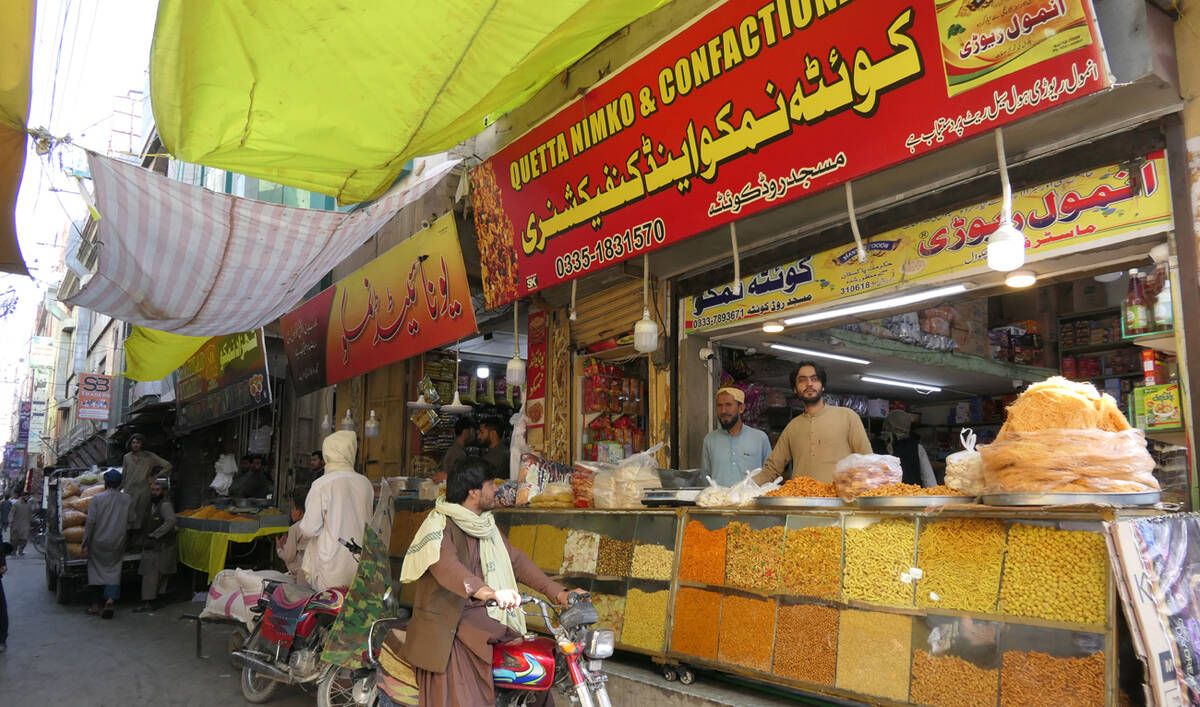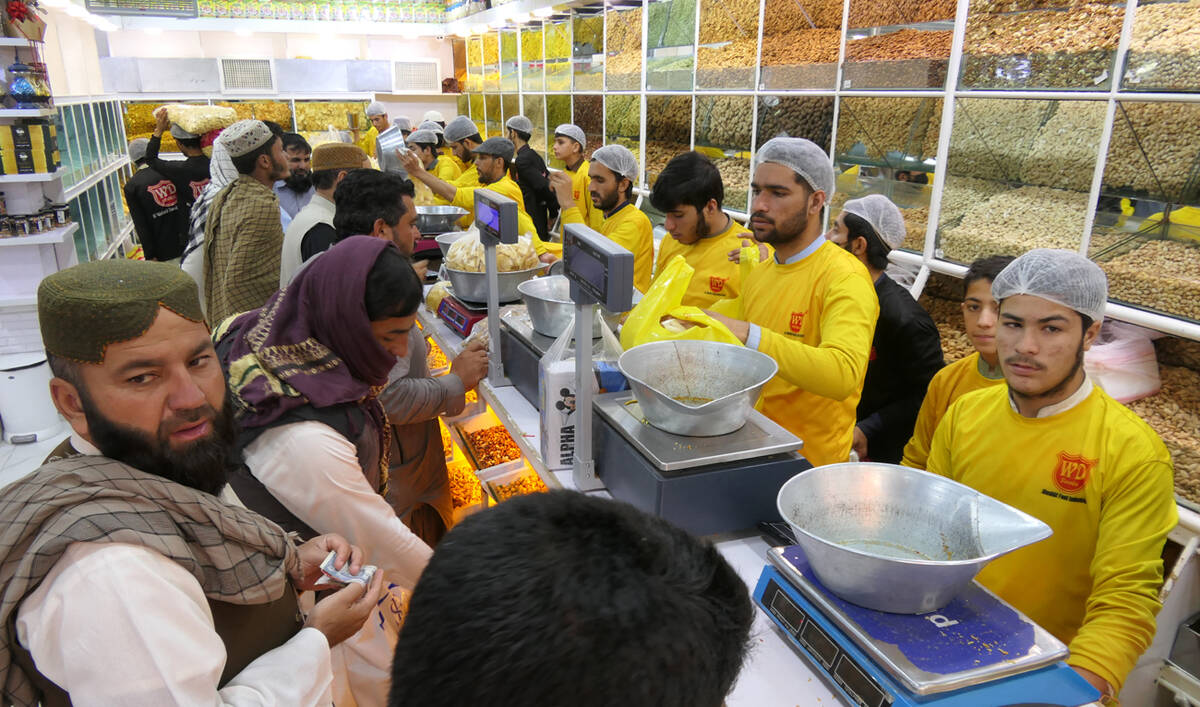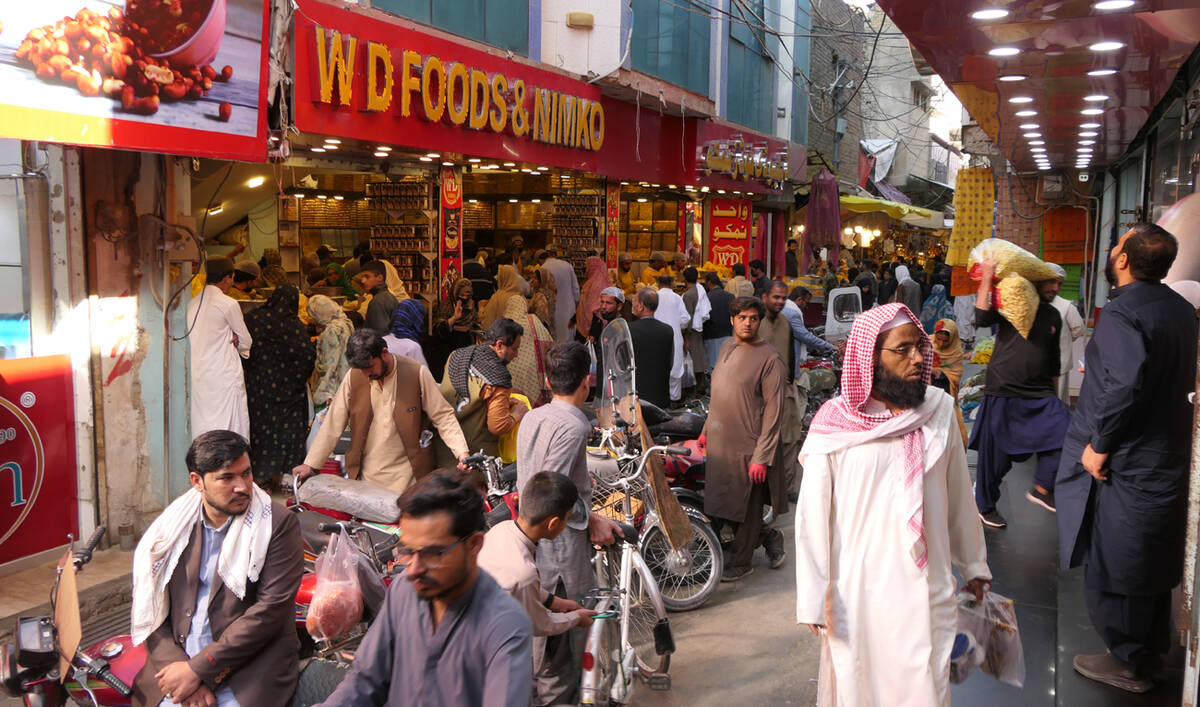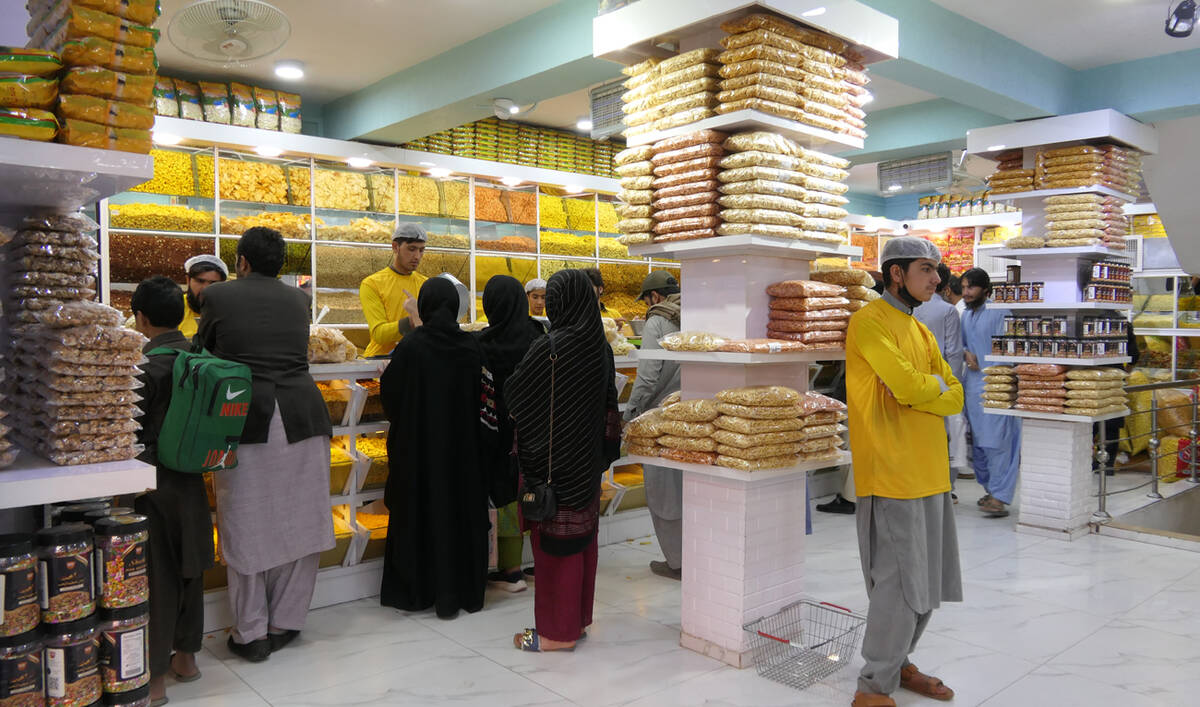QUETTA: Wearing hair nets and face masks, shopkeepers carefully packed fried lentils, chickpeas, potato chips and other nimco snacks into plastic bags for hoards of eager Eid Al-Fitr shoppers earlier this week.
The scene is from a shop on Quetta’s famous Masjid Road, where hundreds of customers have been arriving daily ahead of the Eid holiday to buy nimco, a popular traditional Pakistani snack, typically a mix of fried ingredients like lentils, chickpeas, potatoes, nuts, and spices. Nimco is characterized by its crispy texture and spicy flavor, making it a popular snack for social gatherings and special occasions.
While many Pakistanis celebrate the Eid festival with sweets like vermicelli, rice puddings and jalebi funnel cakes, in Quetta, nimco is the go-to snack.
“This bazaar is called Masjid Road and its specialty is that it is known as the Nimco Bazaar,” said Waled Sabir, a customer. “All the nimco varieties available in Pakistan can be found here.”

Man shops nimco snacks for Eid Al-Fitr in Quetta, Pakistan on March 26, 2025. (AN Photo)
Safiullah Khan, the owner of a 35-year-old nimco store on Masjid Road, said he was at his shop all day long in the days before Eid to cater to holiday revelers.
“Fried potato chips, lentils and mixed nimco are the basic and most in-demand items on Eid,” he said.

Customers gather to buy nimco snacks for Eid Al-Fitr in Quetta, Pakistan on March 26, 2025. (AN Photo)
Apart from the appeal of its salty and crunchy flavor, nimco was also popular because of its affordability, Khan said.
“Nimco is an important and affordable item for many Pakistanis during Eid and not as expensive as other dried fruits,” he said.
Syed Akram Shah, 52, agreed that nimco was a popular alternative to expensive dried fruits.
“Dry fruits are not accessible to poor masses but nimco is an affordable refreshment for us on Eid,” he said as he shopped earlier this month on Masjid Road for fried lentils, his favorite type of nimco.

Customers gather to buy nimco snacks for Eid Al-Fitr in Quetta, Pakistan on March 26, 2025. (AN Photo)
“There is no Eid without nimco because we serve these crunchy snacks to our relatives and friends with a cup of tea when they come over for Eid,” Shah, who had traveled from Mastung city located around 50 kilometers from Quetta, said. “It is a tradition in Balochistan.”
Waleed Sabir, who lives in Quetta, said he had come to Masjid Road because he knew he would find all kinds of nimco there to buy for the Eid holiday.

A shop set for nimco snacks sale in Quetta, Pakistan on March 26, 2025. (AN Photo)
“People of Balochistan are very hospitable and every dining table in every house will be decorated with refreshment items and nimco during the three days of Eid.”
Though Balochistan has seen rise in militant attacks in recent months, which have dampened Eid shopping, many shoppers and sellers said nimco was still a hot favorite.
“Compared to the past [Eids], activities [in markets] have declined a bit due to the law and order and the prevailing situation,” said Khan the nimco seller, “but overall things are still fine.”



















